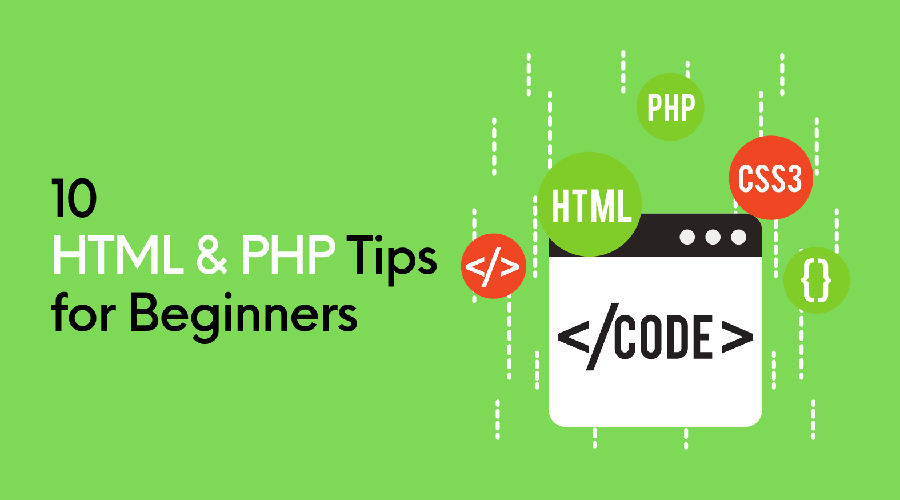HTML (Hypertext Markup Language) and PHP (Hypertext Preprocessor) form the foundation of web development, empowering developers to create dynamic and interactive websites. For beginners embarking on their coding journey, mastering these essential languages is paramount. In this comprehensive guide, we’ll explore 10 valuable tips to help beginner developers enhance their HTML and PHP skills, paving the way for success in web development.
Table of Contents
1. Understanding HTML Structure
Start by grasping the basic structure of HTML, including elements like <html>, <head>, and <body>. Understand the purpose of each element and how they contribute to creating a structured and semantic web page.
2. Embrace Semantic HTML
Utilize semantic HTML tags like <header>, <nav>, <main>, and <footer> to provide meaning and structure to your content. Semantic markup not only enhances accessibility but also improves search engine optimization (SEO) and readability.
3. Master CSS Fundamentals
While not directly related to HTML and PHP, understanding CSS (Cascading Style Sheets) is essential for styling and formatting your HTML elements. Learn CSS basics such as selectors, properties, and values to create visually appealing web pages.
4. Validate Your HTML
Use online validation tools like the W3C Markup Validation Service to ensure your HTML code adheres to standards and is free of errors. Valid HTML code improves cross-browser compatibility and accessibility.
5. Properly Indent Your Code
Maintain clean and readable code by properly indenting your HTML and PHP code. Consistent indentation makes it easier to identify nested elements and troubleshoot issues.
6. Learn PHP Syntax
Familiarize yourself with PHP syntax, including variables, control structures (such as if statements and loops), functions, and arrays. Understanding PHP fundamentals is crucial for creating dynamic and interactive web applications.
7. Practice Code Organization
Adopt good coding practices by organizing your HTML and PHP code into separate files and directories. Use include or require statements in PHP to modularize your code and improve maintainability.
8. Sanitize User Input
Protect your web applications from security vulnerabilities by sanitizing user input before processing it with PHP. Utilize functions like htmlentities() and htmlspecialchars() to prevent cross-site scripting (XSS) attacks.
9. Debugging Techniques
Develop effective debugging skills to identify and fix errors in your HTML and PHP code. Use browser developer tools to inspect elements and console.log() statements in JavaScript to track variables and function outputs.
10. Stay Updated and Practice Regularly
Keep abreast of the latest developments in HTML and PHP by exploring online tutorials, documentation, and forums. Practice coding regularly, building small projects and experimenting with new techniques to reinforce your skills.
Wrap Up
By implementing these 10 HTML and PHP tips, beginner developers can lay a solid foundation for their journey into web development. Understanding HTML structure, embracing semantic markup, mastering CSS fundamentals, validating code, learning PHP syntax, practicing code organization, sanitizing user input, debugging effectively, and staying updated are key steps towards becoming proficient in web development. With dedication, practice, and a thirst for knowledge, aspiring developers can unlock the potential of HTML and PHP, paving the way for success in their coding endeavors.
